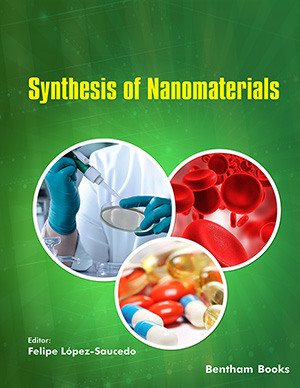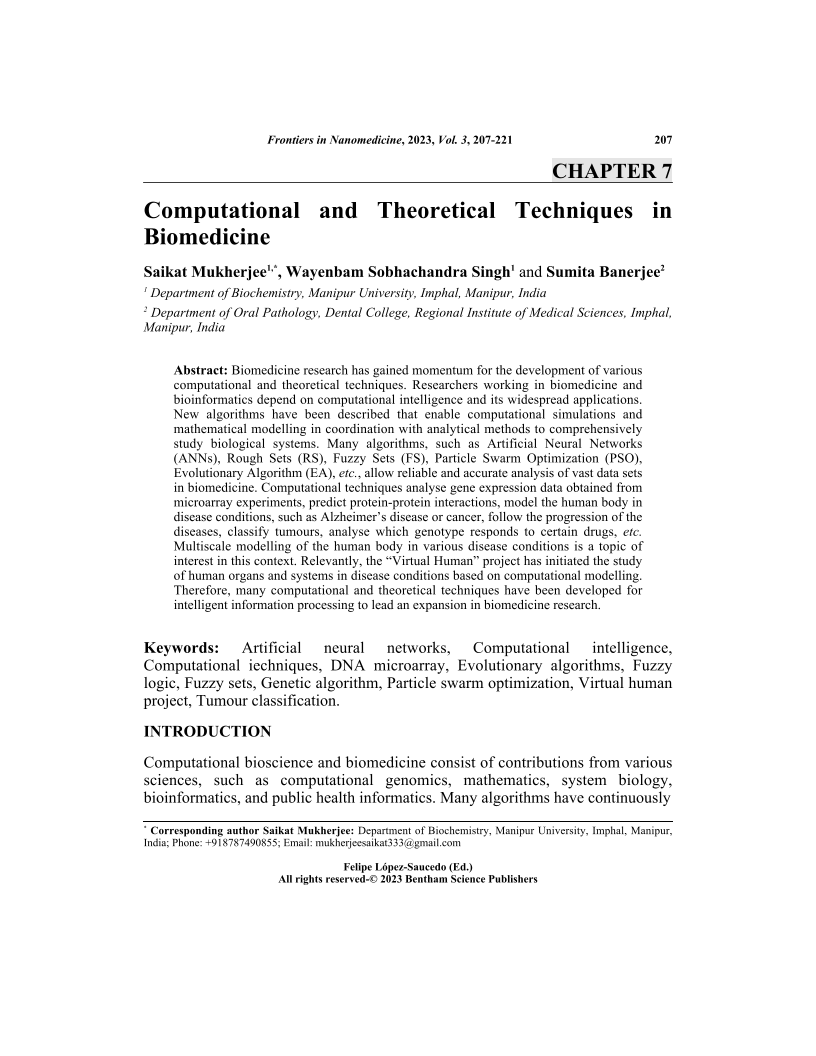Computational and Theoretical Techniques in Biomedicine

- Authors: Saikat Mukherjee1, Wayenbam Sobhachandra Singh2, Sumita Banerjee3
-
View Affiliations Hide Affiliations1 Department of Biochemistry, Manipur University, Imphal, Manipur, India 2 Department of Biochemistry, Manipur University, Imphal, Manipur, India 3 Department of Oral Pathology, Dental College, Regional Institute of Medical Sciences, Imphal, Manipur, India
- Source: Synthesis of Nanomaterials , pp 207-221
- Publication Date: May 2023
- Language: English
Computational and Theoretical Techniques in Biomedicine, Page 1 of 1
< Previous page | Next page > /docserver/preview/fulltext/9789815136920/chapter-7-1.gif
Biomedicine research has gained momentum for the development of various computational and theoretical techniques. Researchers working in biomedicine and bioinformatics depend on computational intelligence and its widespread applications. New algorithms have been described that enable computational simulations and mathematical modelling in coordination with analytical methods to comprehensively study biological systems. Many algorithms, such as Artificial Neural Networks (ANNs), Rough Sets (RS), Fuzzy Sets (FS), Particle Swarm Optimization (PSO), Evolutionary Algorithm (EA), etc., allow reliable and accurate analysis of vast data sets in biomedicine. Computational techniques analyse gene expression data obtained from microarray experiments, predict protein-protein interactions, model the human body in disease conditions, such as Alzheimer's disease or cancer, follow the progression of the diseases, classify tumours, analyse which genotype responds to certain drugs, etc. Multiscale modelling of the human body in various disease conditions is a topic of interest in this context. Relevantly, the "Virtual Human" project has initiated the study of human organs and systems in disease conditions based on computational modelling. Therefore, many computational and theoretical techniques have been developed for intelligent information processing to lead an expansion in biomedicine research.
-
From This Site
/content/books/9789815136920.chapter-7dcterms_subject,pub_keyword-contentType:Journal -contentType:Figure -contentType:Table -contentType:SupplementaryData105

